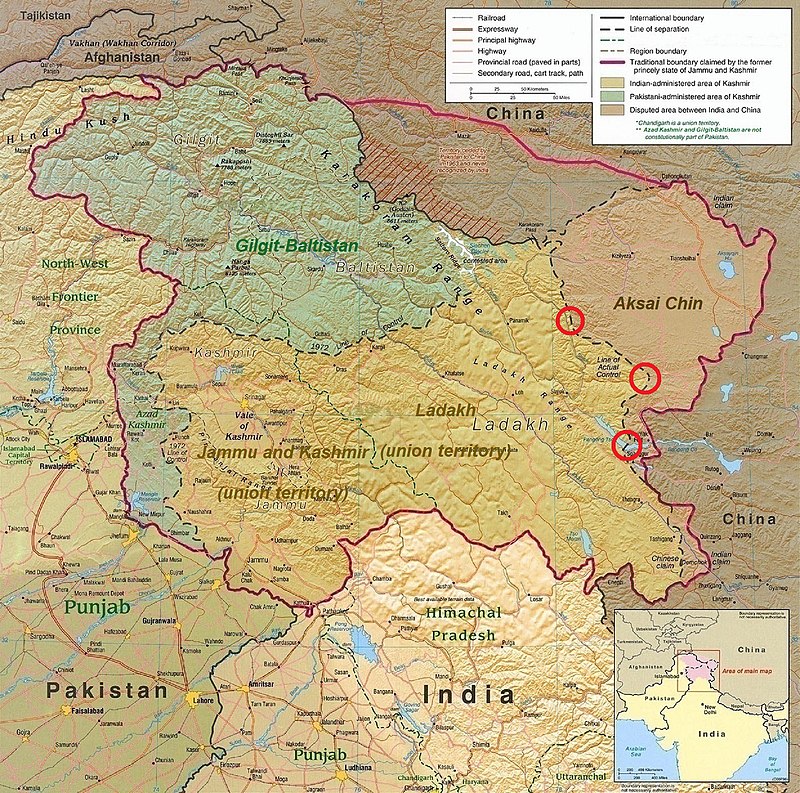The US needs to pay more attention to South Asia, especially India, for an open Indo-Pacific in the backdrop of the growing Chinese aggression, an American think has advised President-elect Joe Biden.
Shia Hazara Community End Protest In Pakistan As PM Imran Khan, Army Chief Bajwa Set To Visit Quetta
The United States Institute of Peace has come out with a report titled ‘China’s Influence on Conflict Dynamics in South Asia’, which it says, will serve as “a road map for the next US administration while it advances the Indo portion of that vision”.

The report has been prepared by a group of South Asia specialists and China watchers led by former US assistant secretary of defense for Indo-Pacific security affairs Randall Schriver and a former US ambassador to Pakistan Richard Olson.
During an online discussion, Olson underlined that US policy in South Asia is shifting as the presence in Afghanistan draws down, and as China becomes more assertive.
With a focus on setting priorities for engagement in South Asia, the report also recommends moving from the Afghanistan war, paying attention to South Asia in the context of Indo-Pacific, making the Quadrilateral Security Dialogue consisting of Australia, India, Japan, and the US focus on power competition with China, forming deeper yet modest relation with India and “right-sized” relations with Pakistan as it moves into China’s embrace.
Eye on China
Schriver talked about China’s interests in South Asia like protecting its western territories, managing its relationship with India, expanding access for its navy, and constructing a more “China-centric” order in the region.
Considering increasing Chinese activities in the Indian Ocean, the report has suggested setting up the “Indo-Pacific maritime policy coordination directorate at the National Security Council”. In order to understand Chinese facilities, investments, and operations in the region, a National Intelligence Estimate of China’s maritime activities in the Indian Ocean and its rimland areas should be commissioned, it says.
On Ties with India
The report meticulously covers all the important points on forming ties with India, which underlines the country’s importance in the Indo-Pacific context. Since India has been locked in a border stand-off with China since May 2020, its strategic importance in the region for the US has increased also due to its hold in the Indian Ocean.

Taking note of India’s hesitance in openly aligning with any country as it maintains “independent foreign policy”, the report says: “The United States will need to advance the partnership at India’s pace and be patient with incremental steps”.
While it recommends supporting India on a peaceful resolution with China, it underlines that the US needs to increase military-to-military agreements and intelligence pacts, all with an eye on China. The report suggests the US should not object to Indian cooperation with Russia and Iran and also be an advocate for India’s enhanced role in international organizations.
At the same time, it takes note of India’s internal politics and developments on Kashmir and minority issues, which have been a matter of contention for experts in New Delhi while talking about Biden’s policy towards India. The report points out that India’s strategic importance shouldn’t let the US oversee its “illiberal steps”.
Changing Outlook Towards Pakistan
The US and Pakistan have traditionally been allies but Islamabad cozying up to China has definitely raised alarms for Washington. China-Pakistan ties have soared in recent years due to the China-Pakistan Economic Corridor Project.
The report takes note of these developments to suggest rebalancing ties with Pakistan. “A constructive working relationship between Washington and Islamabad is in both countries’ interests and should persist given nuclear and terrorism threats emanating from the region,” it says.
Considering India-Pakistan being nuclear powers, the report recommends that in event of a crisis, the US should look at ways that don’t deteriorate the situation between the two countries due to China’s conflict with India.
Follow EurAsian Times on Google




